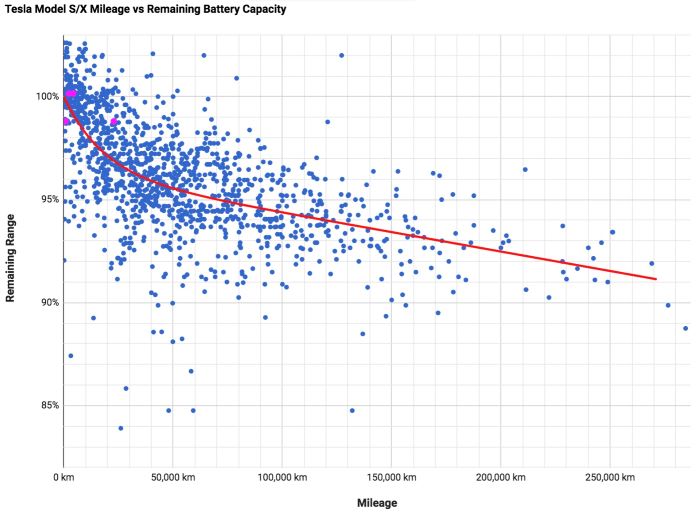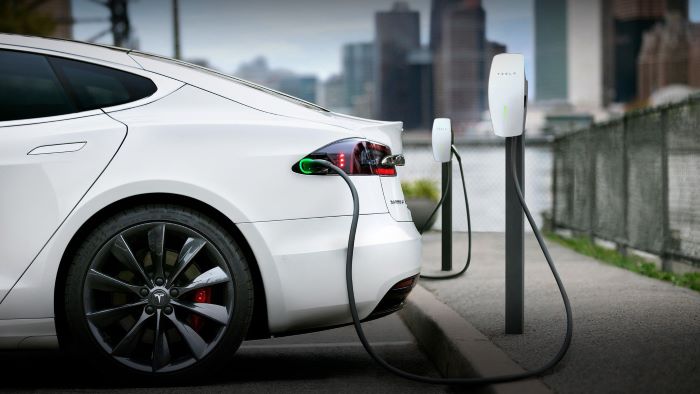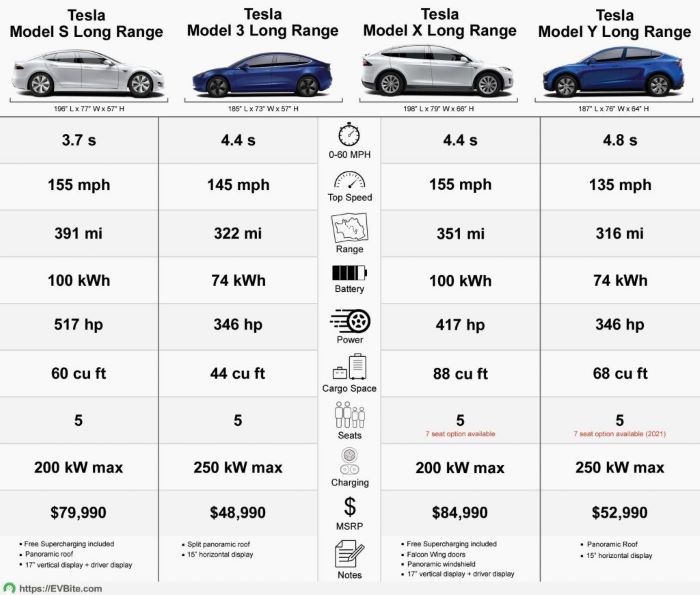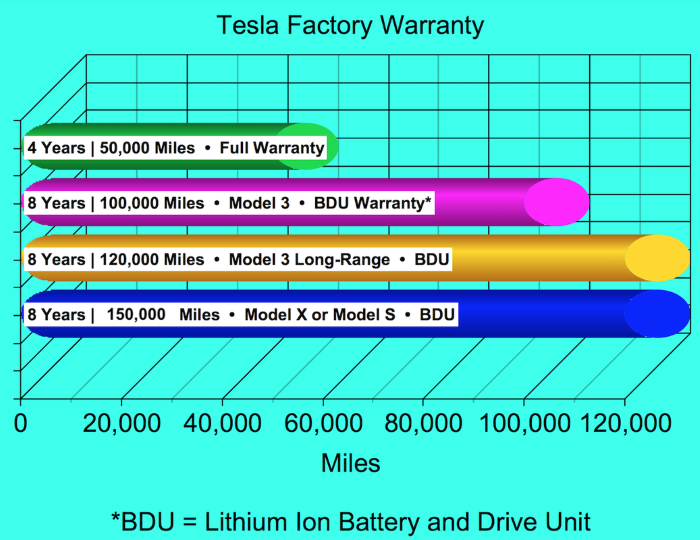Introduction
Electric vehicles (EVs) are becoming increasingly popular, and Tesla is leading the charge in this revolution. One of the main concerns for potential buyers is battery life. This comprehensive guide will help you understand how long Tesla batteries last and how to maximize their lifespan. We will also discuss Tesla’s battery warranty and replacement costs.
Factors Affecting Tesla Battery Life
Several factors can affect a Tesla battery’s life:
- Battery size: Different Tesla models have different battery sizes, which impacts their lifespan. A larger battery will typically last longer.
- Charging habits: Regularly charging your battery to 100% and letting it discharge to 0% can strain the battery, reducing its lifespan.
- Temperature and climate: Extreme temperatures can impact battery performance and longevity.
- Driving habits: Aggressive driving and frequent fast charging can shorten your Tesla battery’s life.
- Manufacturing inconsistencies: Although rare, manufacturing inconsistencies can impact battery life.
Real-World Tesla Battery Lifespan
According to data from Tesla owners, most batteries retain 80-90% of their original capacity after 150,000 miles or approximately 8-10 years of use. While the exact lifespan of a Tesla battery depends on the factors mentioned above, it’s safe to say that most batteries will last between 200,000 to 300,000 miles.
How to Prolong Your Tesla Battery Life
To maximize your Tesla battery’s life, follow these tips:
- Maintain a regular charging schedule: Charge your battery daily to keep it within a healthy range (usually 20-80%).
- Avoid high and low states of charge: Don’t let your battery discharge below 20% or charge above 80% unless necessary. Doing so can cause strain and reduce battery life.
- Keep your Tesla cool: Park in a shaded area or a garage to protect your battery from extreme temperatures.
- Drive more smoothly: Accelerate and decelerate gently to minimize battery wear.
- Reduce fast charging: Use Superchargers only when necessary, as frequent fast charging can degrade the battery faster.
Tesla Battery Replacement Cost
The cost of replacing a Tesla battery can vary depending on the model and battery size. On average, expect to pay between $5,000 and $15,000 for a replacement battery. It’s important to note that battery replacement costs may decrease over time as technology improves and production costs go down.
Tesla Battery Warranty Coverage
Tesla offers a comprehensive battery warranty for its vehicles:
- Model S and Model X: 8-year unlimited-mileage warranty, with a minimum of 70% battery capacity retention.
- Model 3 and Model Y: Standard Range – 8-year, 100,000-mile warranty, with a minimum of 70% battery capacity retention; Long Range and Performance – 8-year, 120,000-mile warranty, with a minimum of 70% battery capacity retention.
Conclusion
To sum up, Tesla batteries are designed to last a long time, but their lifespan depends on factors such as battery size, charging habits, temperature, and driving behavior. By following the tips provided in this guide, you can prolong your Tesla battery’s life and minimize the need for costly replacements. Don’t forget to refer to your Tesla battery warranty for coverage details and remember to drive responsibly to get the most out of your electric vehicle.
FAQs
How often do Tesla batteries need to be replaced?
Most Tesla batteries will last between 200,000 to 300,000 miles before they need to be replaced, retaining 80-90% of their original capacity after 150,000 miles or approximately 8-10 years.
How do I check if the battery on a used Tesla is still good?
You can access the battery health information on the car’s touchscreen display. Alternatively, you can use third-party apps or services that provide battery health diagnostics.
What happens if my Tesla runs out of battery?
If your Tesla runs out of battery, you’ll need to call roadside assistance to have your vehicle towed to the nearest charging station or your home.
Can non-Tesla EVs use Tesla Superchargers?
As of now, non-Tesla EVs cannot use Tesla Superchargers. However, Tesla has expressed interest in opening its charging network to other electric vehicle manufacturers in the future.




